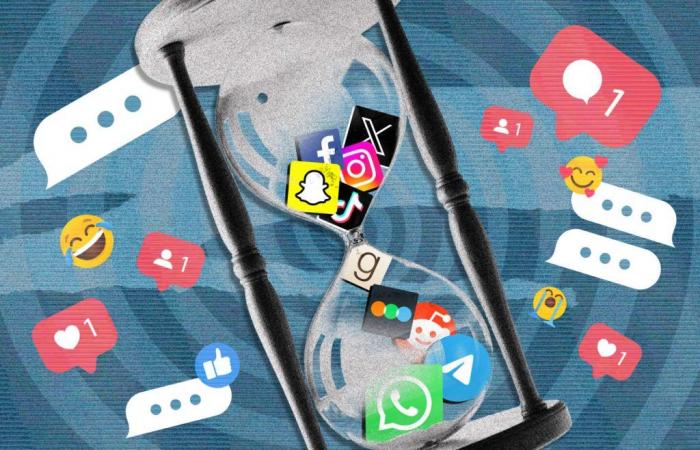NYes, social networks are not dead. More than two billion people connect every day to Facebook, a billion every month to TikTok, and, despite repeated scandals, 250 million every day to look like a new era of the Web.
We go to social media every day, in droves. But we publish less and less there. Adam Mosseri, the boss of Instagram, himself recognized this last year in a podcast: “You no longer share many personal moments in the feedas you did five or ten years ago. You share them more in “stories”, or in private messages. » He explained in particular that teenagers spent most of their time in the application’s private messaging system, and no longer in its public spaces.
A paradigm shift. The arrival of Facebook in 2004 represented a big bang, transforming our online habits and establishing the era of social networks. An era where everyone, without any technical knowledge, could with one click publish a text, a photo, a video, for their friends. An era in which we were inclined to indulge, encouraged by the race for likes, and where the definition of “friends” expanded to the point where we no longer needed to know them. On Twitter, they became “subscribers”, were able to share and reshare our content to an unknown, but ever-increasing, audience. An era of buzz that the selfie generation then rushed into, on Instagram. Showing yourself, in photos or videos, has become a new form of language; collect followers, comments, reaction emojis, a priesthood.
“Now I no longer publish”
But the frenzy is running out of steam. “Before, I told my whole life on the Internet”says Sarah, 36, salesperson in the Rhône. “I shared a lot of photos publicly on Facebook. I wrote “I’m too lazy to go to class”, “I’m going to get a coffee”… It changed a lot. Now I don’t post anymore, I don’t use my real name, I can’t be recognized in my profile picture. Over time, I realized that publishing could have repercussions on my professional life, that social networks could be used to harass, or could exploit our data in unhealthy ways. »
Rayan Hermassi is not part of the same generation. But at 19, he chose to uninstall all social networks from his phone, with the exception of Snapchat. “While preparing for the baccalaureate, I procrastinated too much. I’d come home, I had things to do, I’d go on TikTok, and at one in the morning I’d realize I hadn’t done anything. » If he kept Snapchat, it was mainly for his messaging, a privileged and private place for exchange with his friends. Like most of them, he never posts in public. “I don’t see the point, I don’t want to post content that anyone can see. »
You have 80.37% of this article left to read. The rest is reserved for subscribers.






